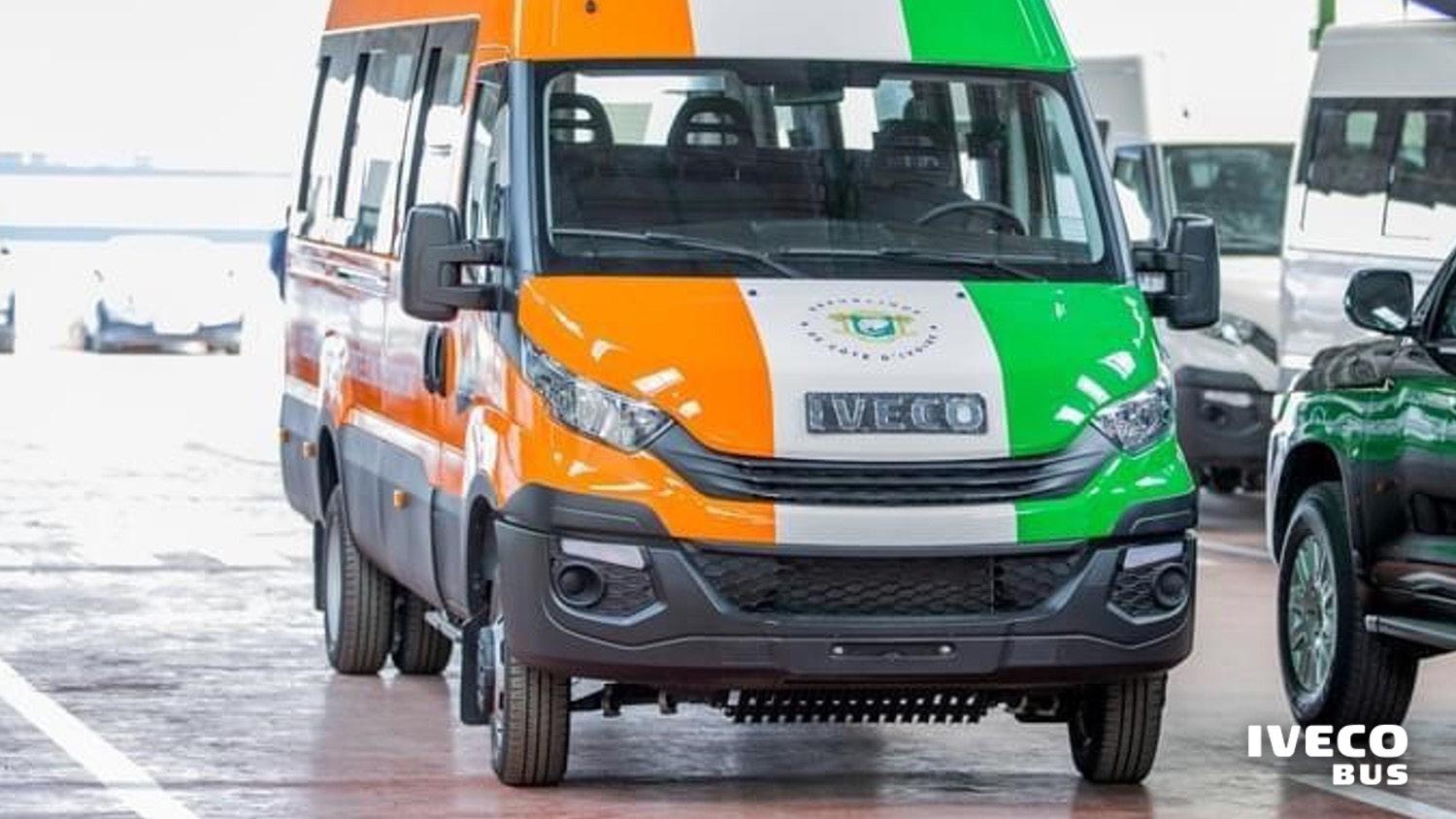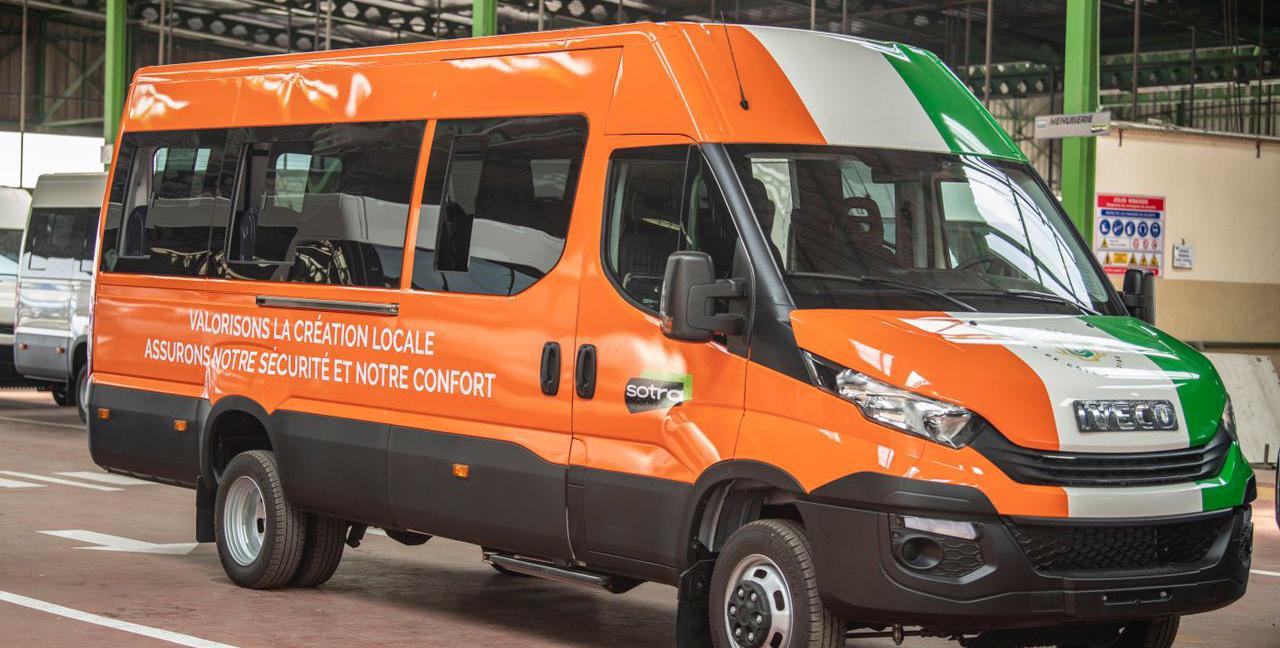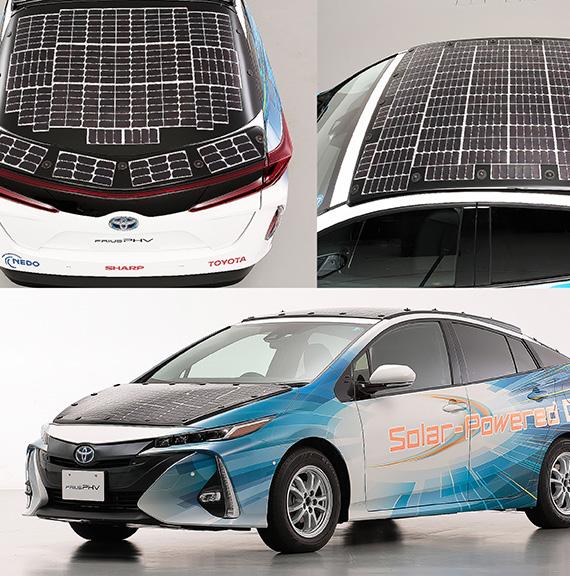
5 minute read
Côte d’Ivoire’s automotive ambitions in West Africa
The Franco-Italian group Iveco has launched a bus assembly unit in Abidjan, a nearly €70m investment, as it is betting on local production for the Ivorian market and, in the long term, the sub-regional market.
The assembly unit launched on 10 January by the Franco-Italian car manufacturer Iveco Group, via its bus subsidiary, will produce “made in Côte d’Ivoire” minibuses in conjunction with its long-standing partner, the Société des Transports Abidjanais (Sotra). The latter company was established in 1960 and is now 60% owned by the Ivorian State and 40% by Iveco Bus.
Advertisement
The assembly line, which represents a 45bn CFA francs (€69m) investment, is located on the Sotra Industries site, in the Koumassi district, in the southern part of the Ivorian economic capital. Furthermore, it has a production capacity of 1,000 vehicles (18 to 26-seat buses) per year and the ability to manufacture different models (buses, ambulances, troop transport vehicles for the security forces, construction trucks), which are marketed under the Daily Ivoire brand.
Regional export is the goal Patrick Achi, Côte d’Ivoire’s prime minister, Amadou Koné, the transport minister, and several other government members attended the launch of the workshop, which should enable Côte d’Ivoire to produce for its domestic market – where demand for vehicles from dealers grew by 17% in 2021, compared to the previous year – but also, in the long term, for export to West Africa. automobile sector and bring together spare part manufacturers in San Pedro, the country’s second port. But the new AkoupéZeudji industrial zone, near Abidjan, is also expected to accommodate some manufacturers.
For the time being, the project’s promoters have indicated that their order book is full until 2024, thanks solely to the Ivorian market and that 60 vehicles have already left the factory. Iveco Bus, which is prospecting in the sub-region, already has plans to set up operations in two of Côte d’Ivoire’s neighbouring countries.
Diversity of target customers Although no indication has been given of what countries will be targeted, Vincent Dabilgou, Burkina Faso’s minister of transport, urban mobility and road safety and Augusto Gomes, his counterpart from Guinea-Bissau, travelled to Abidjan for the launch. The target customers are private transport companies, schools and businesses within the Economic Community of West African States (Ecowas). “We plan to continue to invest by creating, by 2022 at the latest, a second assembly line,” said Stéphane Espinasse, Iveco Bus’ president, who launched this assembly project in 2018 and has been in the capital of Sotra for 40 years. Iveco is thus ahead of several other manufacturers who had also announced that they would be creating vehicle assembly lines in the country. In 2019, Toyota, CFAO Motors’ parent company, signed an agreement with the Ivorian government to open a commercial vehicle assembly unit, a project still under negotiation with Côte d’Ivoire.
International groups multiply projects In the meantime, in August 2021, the Japanese group opened an assembly unit with a production capacity of 1,330 vehicles (pick-up) in neighbouring Ghana. This $7m investment is intended to supply the West African market, which, the manufacturer assures, has not questioned the Ivorian project.
In 2015, the Indian group Ashok Leyland, a subsidiary of the British conglomerate Hinduja Group, signed a contract with the Ivorian government for the delivery of more than 3,000 transport buses for a sum of $200m, financed by a loan from Exim Bank India. At the time, Ashok Leyland had planned to set up an assembly plant in Abidjan, an ambition that has not yet materialised.
Two other manufacturers also had similar plans. One of them was the French group Renault, which sells an average of 1,000 cars a year in the country, back in 2019. At the same time, the Indian group Tata Motors, which supplies buses to Sotra, had discussed the possibility of setting up an assembly line with the Ivorian transport operator.

Self-charging full electric vehicle launched in Africa

ASouth Africa-based Electric Vehicles [EV] manufacturer, Agilitee Africa, has launched its first self-charging four-wheeler electric vehicle named the Agilitee-Go.
This is after the firm was awarded a certification from the government of South Africa certifying Agilitee as a manufacturer of vehicles in their country. The firm has also set up a base in West Africa with its headquarters in Nigeria. In Ghana and Zimbabwe, there are plans to establish an assembly plant for cars, electric motorcycles, and scooters.
“We intend to penetrate into all parts of Africa. We will in the long run set up assembly plants in some countries,” said Lamba.
He added: “Most African governments have not entirely adopted the use of electric vehicles but we will educate our people on their benefits.”
Agilite electric vehicles do not rely on the grid to be charged as they are powered by solar and have a backup battery.
Ghana, like other Sub-Saharan Africa, is a big market for second-hand vehicles imported mainly from Asia and other parts of the world which have been blamed for emitting higher levels of carbon dioxide.
Lamba added that their technology can reduce emissions that contribute to climate change, improve public health and reduce ecological damage.
“Our Agilitee Go car has a travel range that can cover 300km if fully charged and also self-charges, 1100p HD Reverse Camera with a large central screen, sensitive and quick response combined hydraulic breaks, Front & Rear impact guard with a side protection for all occupants, Bluetooth hands-free calls, child lock Hill-Start assist control (HAC) and Automatic Gear,” Dr Mandla Lamba, the firm’s Chief Executive Officer explained.
He also pointed out that the rise of EV cars is gaining momentum in the African continent.
“Today most green-tech start-ups in Africa are leading the continent’s charge towards electric mobility, this is a critical intervention in the fight against climate change driven by a global tide in the use of electric vehicles (EVs).” Dr Lamba added.
However, the continent’s shift to electric mobility lags behind Europe, the US and China, the global frontrunners in electric mobility.
Dr Lamba noted that “In 2020 South Africa sold only 92 battery electric vehicles (BEVs) down from 154 in 2019, representing 0.02 per cent of domestic vehicle sales. Hybrid sales declined from 253 units in 2019 to 232 units in 2020. Nonetheless, several countries are developing comprehensive policy frameworks to catalyse the transition and adoption of electric mobility.”









